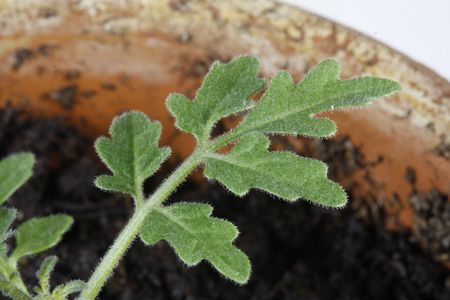Prof. Dr. Laura E. Rose
Research focus
My research focuses on reconstructing the evolutionary history of complex adaptations. Population genetic and phylogenetic methods can be used to dissect how natural selection has brought about these traits. Quantitative evaluation of natural genetic variation combined with phenotyping under greenhouse and field conditions uncovers how allelic differences among individuals relate to functional variation, important for plant productivity.
Most important publications
- von Dahlen JK, Schulz K, Nicolai J, Rose LE (2023) Global expression patterns of R-genes in tomato and potato. Front Plant Sci 14:1216795. doi: 10.3389/fpls.2023.1216795.
- Dumack K, Feng K, Flues S, Sapp M, Schreiter S, Grosch R, Rose LE, Deng Y, Smalla K, Bonkowski M (2022) What Drives the Assembly of Plant-associated Protist Microbiomes? Investigating the Effects of Crop Species, Soil Type and Bacterial Microbiomes. Protist 173(6):125913. doi: 10.1016/j.protis.2022.125913.
- Dumack K, Sapp M, von Steimker T, Mänz AT, Rose LE, Bonkowski M (2021) A Call for Research: A Resource of Core Microbial Symbionts of the Arabidopsis thaliana Microbiome Ready and Awaiting Experimental Exploration. Phytobiomes Journal 5(3):362-366. doi: 10.1094/pbiomes-11-20-0080-a.
- Schnake A, Hartmann M, Schreiber S, Malik J, Brahmann L, Yildiz I, von Dahlen J, Rose LE, Schaffrath U, Zeier J (2020) Inducible biosynthesis and immune function of the systemic acquired resistance inducer N-hydroxypipecolic acid in monocotyledonous and dicotyledonous plants. J Exp Bot 71(20):6444-6459. doi: 10.1093/jxb/eraa317.
- Sapp M, Tyborski N, Linstädter A, Lopez Sanchez A, Mansfeldt T, Waldhoff G, Bareth G, Bonkowski M, Rose LE (2019) Site-specific distribution of oak rhizosphere-associated oomycetes revealed by cytochrome c oxidase subunit II metabarcoding. Ecol Evol 9(18):10567-10581. doi: 10.1002/ece3.5577.
- Sapp M, Ploch S, Fiore-Donno AM, Bonkowski M, Rose LE (2018) Protists are an integral part of the Arabidopsis thaliana microbiome. Environ Microbiol 20(1):30-43. doi: 10.1111/1462-2920.13941.
- de Vries S, von Dahlen JK, Schnake A, Ginschel S, Schulz B, Rose LE (2018) Broad-spectrum inhibition of Phytophthora infestans by fungal endophytes. FEMS Microbiol Ecol 94(4). doi: 10.1093/femsec/fiy037.
- Beddows I, Reddy A, Kloesges T, Rose LE (2017) Population Genomics in Wild Tomatoes-The Interplay of Divergence and Admixture. Genome Biol Evol 9(11):3023-3038. doi: 10.1093/gbe/evx224.
- Ploch S, Rose LE, Bass D, Bonkowski M (2016) High Diversity Revealed in Leaf-Associated Protists (Rhizaria: Cercozoa) of Brassicaceae. J Eukaryot Microbiol 63(5):635-641. doi: 10.1111/jeu.12314.
- Heidel AJ, Kiefer C, Coupland G, Rose LE (2016) Pinpointing genes underlying annual/perennial transitions with comparative genomics. BMC Genomics 17(1):921. doi: 10.1186/s12864-016-3274-1.

